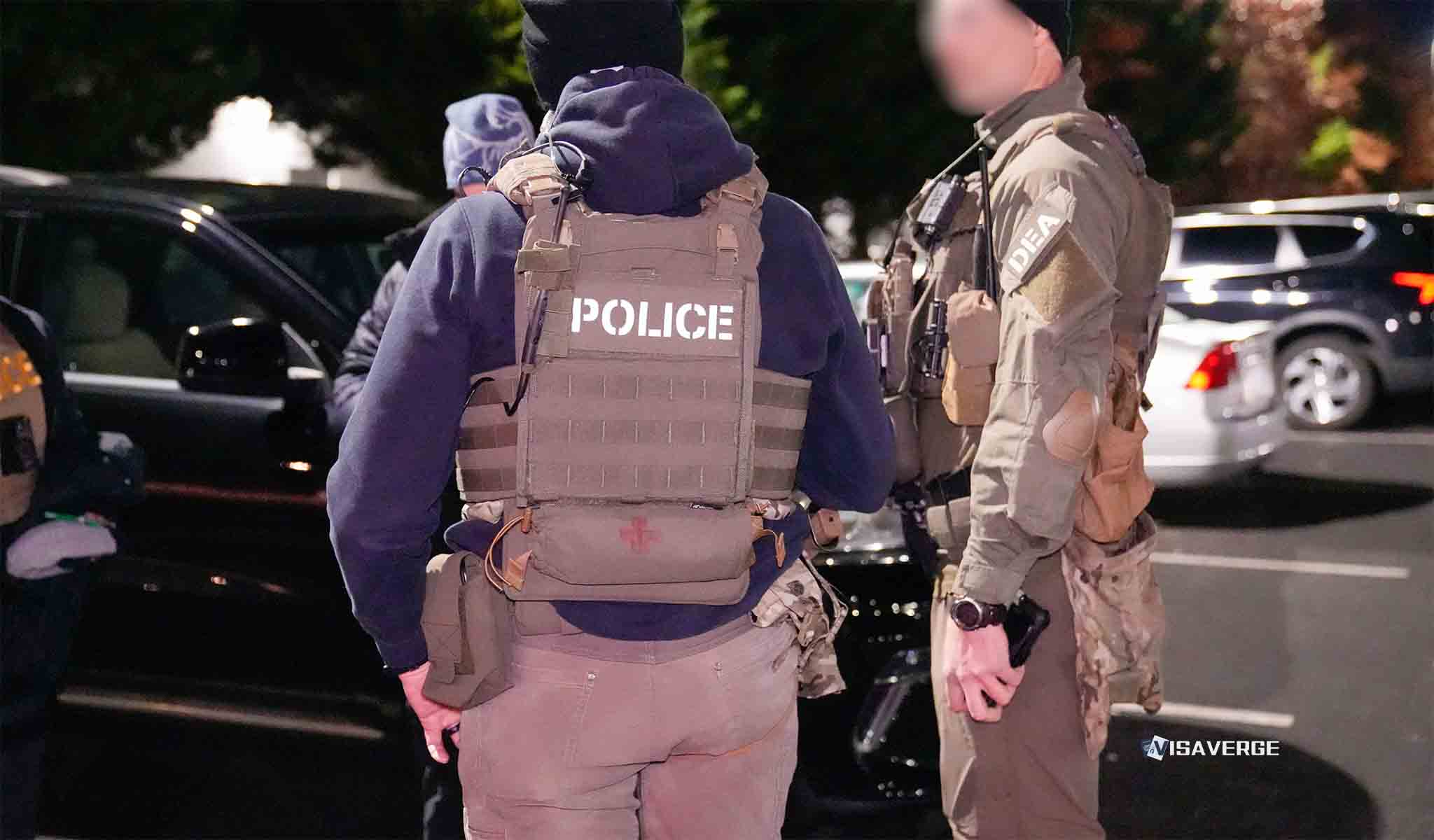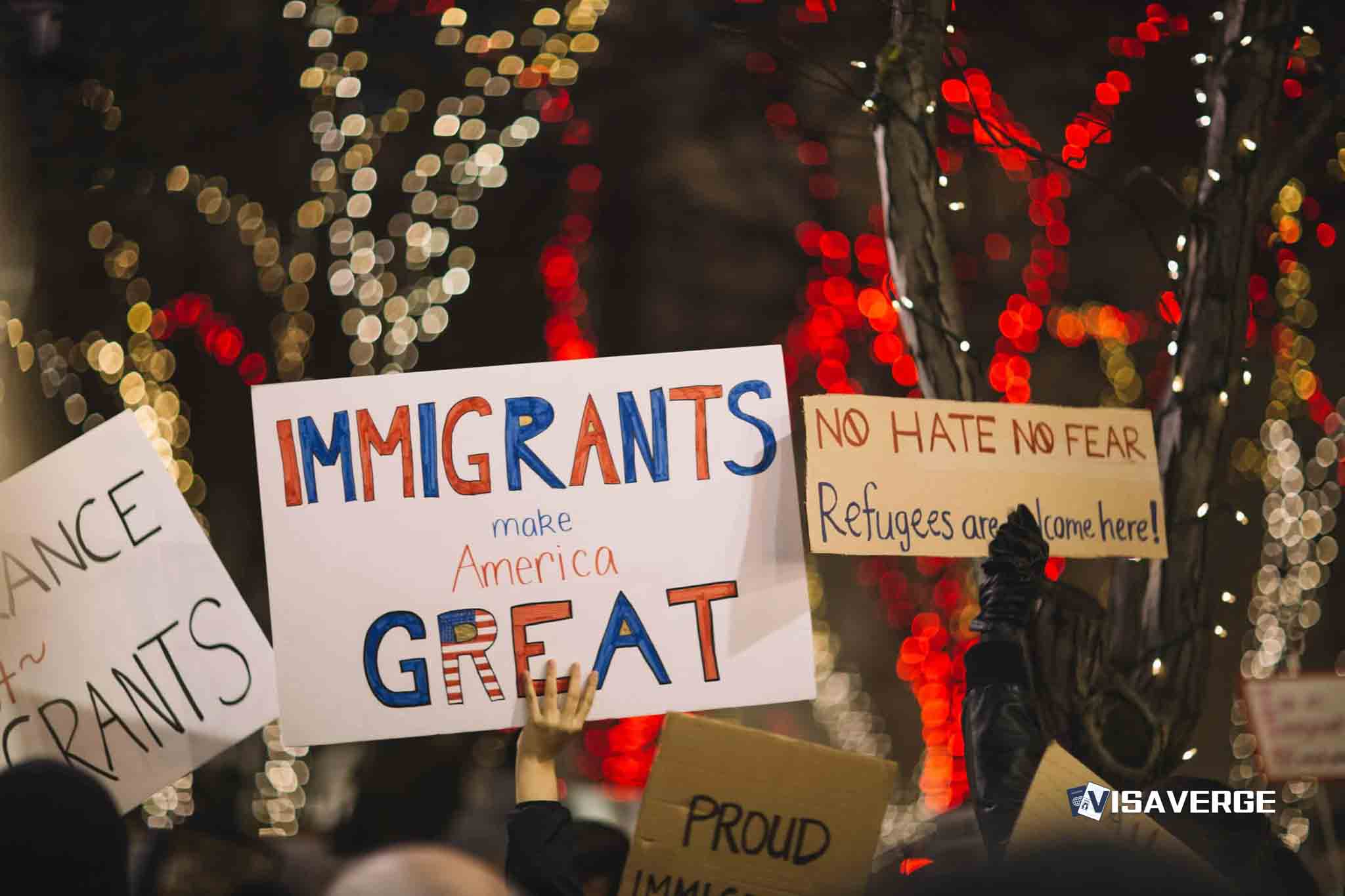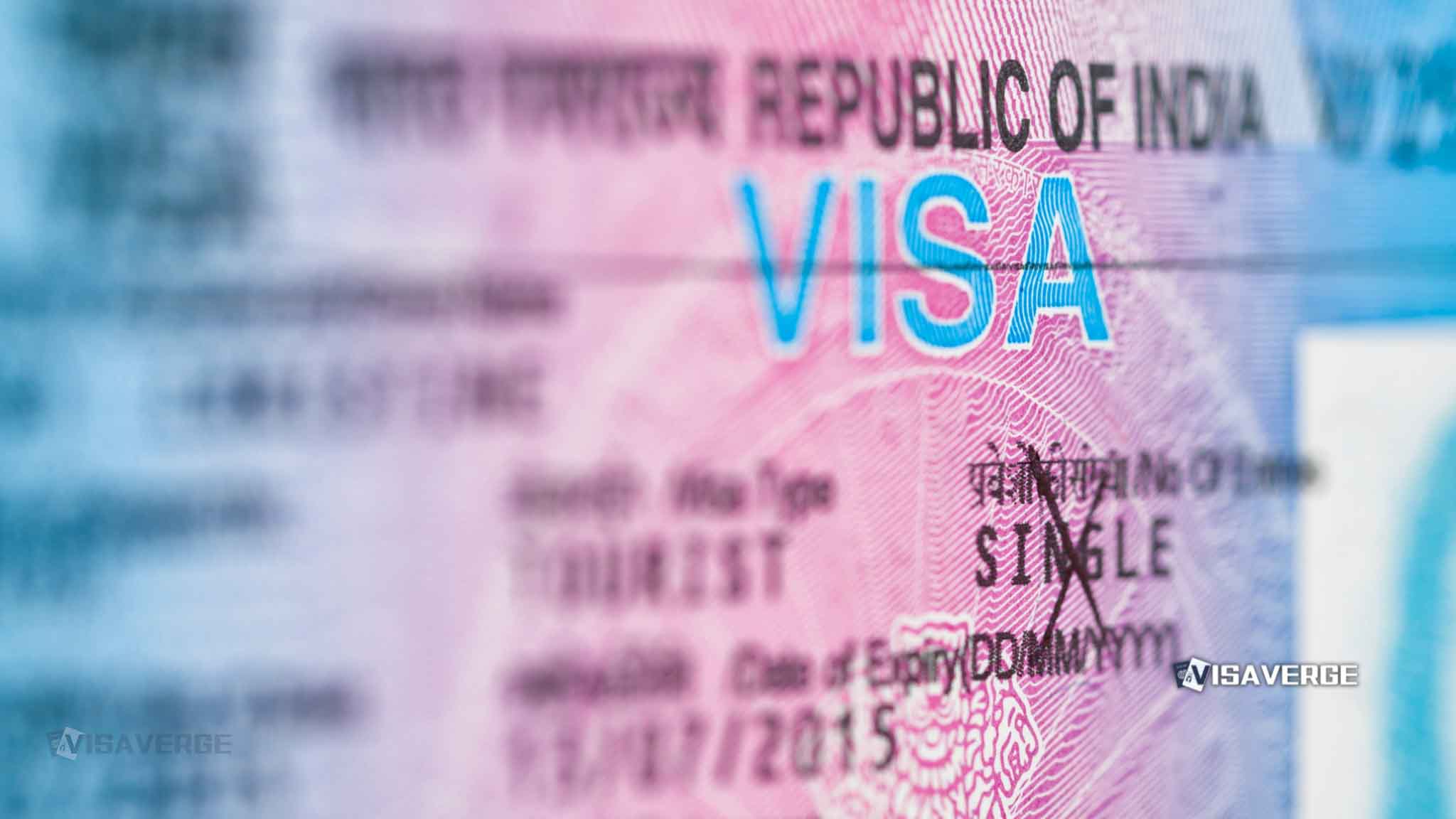(WASHINGTON, D.C.) D.C. Police Chief Pamela Smith on Aug. 14, 2025, signed an executive order expanding cooperation between the Metropolitan Police Department and federal immigration agents, enabling officers to share information about people who are not in custody and to help with transportation for federal personnel and detainees. The order took effect immediately and marks a policy shift from the District’s 2020 sanctuary law, which had limited routine cooperation with federal immigration enforcement.
Under the directive, Information Sharing Expanded means MPD officers may pass along details about individuals they encounter during traffic stops, checkpoints, or other field contacts, even when those individuals are not under arrest. The order keeps certain limits in place: officers may not search databases solely to check immigration status, and they may not arrest someone solely on immigration status or based on a federal immigration warrant without a related criminal warrant or underlying offense. MPD officers are now also authorized to provide transportation for federal immigration employees and detained individuals.

The changes come one week after a federal law enforcement intervention in the nation’s capital began, a deployment launched by President Trump’s administration around Aug. 7 to address crime and homelessness. Since that start, federal officials say there have been more than 140 arrests, including at least 29 immigration-related arrests on Aug. 13, according to FBI Director Kash Patel. City leaders and residents woke Thursday to the new order from Pamela Smith as federal agents and National Guard troops continued to operate in the District.
Policy Changes Overview
Washington, D.C. has held sanctuary city status since the Sanctuary Values Amendment Act of 2020. That law limited how local police could work with federal immigration officers.
Chief Smith’s order does not erase those protections, but it partly loosens the lines, allowing non-custodial information sharing and transportation help while keeping bans on arrests based only on immigration matters. According to analysis by VisaVerge.com, the order preserves parts of D.C.’s sanctuary framework while widening day-to-day cooperation.
The timing links local policy to a broader federal push in the District. The federal presence—National Guard units and federal police assets—has changed daily operations in parts of the city.
Supporters argue closer work between local and federal officers will make streets safer by speeding up responses and removing barriers to coordination. An MPD officer who conducts a stop can now share details with federal immigration agents without first taking someone into custody, a step that could lead to more federal actions without local arrests.
While D.C. is not entering a formal immigration enforcement partnership like those seen in some counties, readers seeking background on how local-federal cooperation can work can consult the U.S. Immigration and Customs Enforcement overview of the 287(g) program, which explains one model of such cooperation: https://www.ice.gov/identify-and-arrest/287g. The District’s new policy is different in scope, but the federal page helps explain the kinds of roles local police sometimes play when working with immigration authorities.
Community Impact and Legal Boundaries
For officers, the order sets out a sharper path: they can share information from routine encounters and provide transportation, but they still cannot conduct immigration-only checks or make arrests based only on status. Those limits matter for community trust.
Immigrant families have long worried that a broken taillight or a checkpoint could pull loved ones into deportation systems. Now, because MPD can send details from those encounters to federal agents, routine stops may carry higher risk of follow-up by immigration authorities, even though MPD itself cannot detain someone solely for a civil immigration issue.
For immigrants living in the District, the message is mixed:
- Sanctuary law remains on the books and the order reaffirms that MPD will not arrest on immigration grounds alone.
- The Information Sharing Expanded rule reopens a channel that had been partly closed since 2020.
- Practical advice remains the same: people with open immigration cases should speak with a qualified attorney, keep copies of key documents, and know where to reach legal help.
- Community groups are likely to increase outreach to explain what the order does—and does not—allow local police to do.
Legal lines in the order are clear on two points:
- No database fishing: officers cannot run searches just to find out someone’s immigration status.
- No status-only arrests: an immigration warrant by itself, without a criminal warrant or crime, is not enough for MPD to arrest.
These guardrails aim to keep the District’s sanctuary law in place while permitting closer everyday contact with federal personnel.
Politics and What Comes Next
The policy shift lands in a tense political moment for the city. Mayor Muriel Bowser tried earlier this year to repeal the sanctuary status through the 2026 budget bill, but the D.C. Council rejected that move in June.
On Aug. 14, the Mayor was out of town; her office confirmed her absence but did not issue a statement on the order that day. The Council has not acted on new legislation tied to federal immigration enforcement since the federal deployment began.
Reactions are split:
- Supporters:
- Republicans in Congress and some local residents welcomed the change.
- Senator Mike Lee of Utah called it “excellent news.”
- A White House rapid response post declared, “MAKE D.C. SAFE AGAIN.”
- Backers say the order will help remove barriers between agencies and speed up operations when federal immigration teams need local support.
- They also point to the arrest figures released since the federal surge started.
- Opponents:
- D.C. Attorney General Brian Schwalb criticized the federal takeover and Smith’s order as “unprecedented, unnecessary, and unlawful,” arguing that violent crime is at historic lows and warning that the changes threaten residents’ rights and safety.
- Civil rights lawyers are reviewing options, and court challenges may follow—especially if federal teams rely heavily on MPD contacts to locate people during traffic stops or checkpoints.
What happens next will depend on daily practice. The order is effective immediately, so MPD supervisors will begin training and guidance work to align patrol habits with the new rules. Federal teams are expected to keep operating in the city in the near term.
Possible future scenarios:
- If arrest numbers climb and community concerns grow:
- The Council could revisit the District’s sanctuary law in late 2025 or 2026.
- If the impact seems limited:
- Officials may leave the current framework in place.
For now, Pamela Smith’s order creates a new normal:
- MPD remains barred from status-only arrests and status-only database checks.
- MPD officers may share information from non-custodial encounters and assist with transportation for federal immigration teams.
Employers, school leaders, and service providers should be ready to answer basic questions from families who fear routine stops could reach federal databases more quickly than before. Residents who need case-specific advice should consult licensed attorneys, not rumors or social media threads.
VisaVerge.com reports that the District’s move will be closely watched nationwide because city-to-federal cooperation rules often shape how families experience immigration enforcement in daily life. With federal teams on the ground, and the Metropolitan Police Department now set to cooperate more often in the field, the balance between community trust and enforcement goals will be tested in real time across the nation’s capital.
Key takeaways:
– The order is effective immediately and expands non-custodial information sharing and transportation assistance.
– Critical legal limits remain: no searches solely for immigration status and no arrests solely for immigration status.
– The policy change may prompt legal challenges and increased community outreach.
Frequently Asked Questions
This Article in a Nutshell
On August 14, 2025, MPD Chief Pamela Smith expanded cooperation with federal immigration agents. The order permits non‑custodial information sharing and transportation assistance while prohibiting database searches or arrests based solely on immigration status, altering sanctuary-era practices amid a federal deployment and prompting legal scrutiny and community concern.













